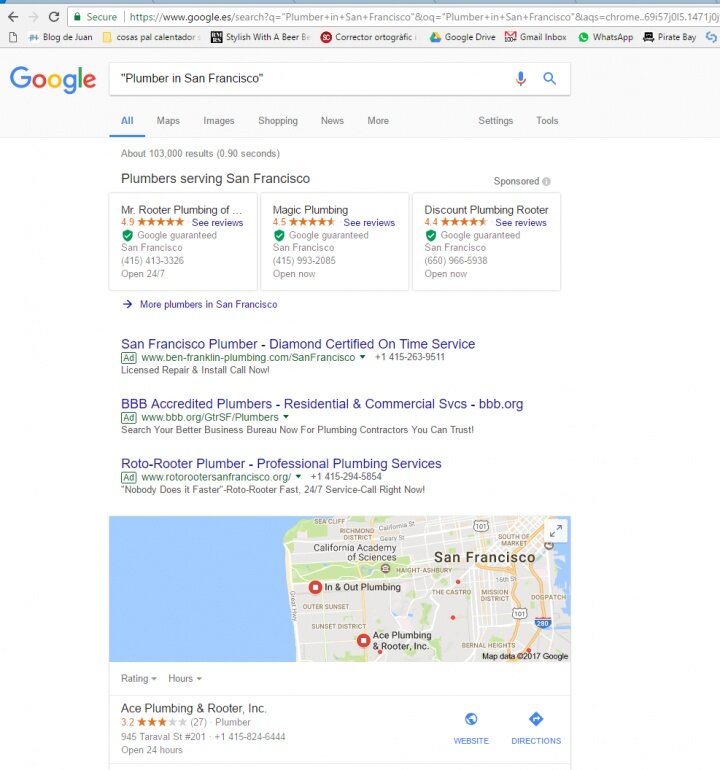I get your point that the ads have been getting more and more obtuse, but even in paid search you can see Google's attention to quality. The Quality Score is still a big deal, and while PPC isn't my scene anymore, I wouldn't be surprised if they still enforce their quality policies with account bans still, even if it means turning away money. I hear you about the ads, but looking at the big picture, it really does seem overly reactionary to think Google will ever eliminate quality and relevance as a primary consideration.
When it comes to disempowering SEOs as you put it, and changing the Google Adwords Keyword Tool information, I don't know that I have a great explanation for that honestly, except to say that I don't think the future of SEO is going to look like you're expecting. SERP variation for similar keywords are already diverging, personalized results are changing the spread, location is getting a bigger and more complex role, and voice search is going to grow the long tail and shrink the 'primary' keywords we're all used to thinking of. Here's what I think: Google's primarily interested in search intent. The Keyword is not the core piece of information that describes the user, it's just the best shorthand available in the past. The core piece is the actual searcher's intent... their thoughts, their desires, their beliefs, their location, the current story of their life as it led them to type in a given search. I think part of what we're seeing with SEO in the last few years is the very beginning stages of a shift away from keywords, and towards the true heart of the searcher's intent. The most savvy marketers knew that all along, but Google's still maybe 5~10 years away from being able to make that leap themselves on a large scale.
To put it another way: Google doesn't support SEOs, because SEOs often aren't actually helping to make the web a better place. People on this forum are, perhaps you are, but many just look for loopholes. Local maxima in the optimization equation, rather than supporting the actual trends Google's hoping to encourage. I don't know what percentage of SEOs practice actual best practices, and which are somewhere between gray and black hat (either out of ignorance or malice) but
looking at the industry, I suspect we're in the minority. What Google's actually hoping to move on for the local scene at least, is to optimize towards distance, relevance, and prominence. As Google gets closer and closer to their real intended goals, all an SEO can really do, will be to help a business line up with those core signals as best as possible. Prominence especially is going to have just as much to do with offline prominence as online when things converge down the road. A few years ago you could 'fake it' with a PBN, or link rings, or comment spam, but more and more, we're 'stuck' going for the far more challenging backlinks... the ones that actually do relate to prominence. The ones that signal relationships with other businesses in the community, relationships with local non-profits, ties to the university you graduated from, getting your work featured and nominated for industry awards, being referenced in local news as an expert in your area... you get the idea. The only reason Google still uses backlinks at all, is because their results are better with than without. In other words, they're a useful shorthand for Google to guess at the actual prominence of a business, but it doesn't necessarily mean backlinks and prominence are one and the same.
Look at it another way. Do you know what Google's AI division has been up to lately? For the first time, they've beaten the best human Go player, 4 to 1. That wasn't projected to happen for another decade. They can take in live video stream, and annotate what's going on. "There's a man with a blue jacket eating a cheese danish, while trying to fight off a hungry pigeon". Even more insane: they're to the point where you can use a neural net trained to recognize a given object, and reverse it. You can ask what it thinks a cat looks like, and
it will paint you a picture of a cat. Google Translate last November was
completely replaced with a far better system than the one that was developed over 10 years with 100(s) of coders. The new system? A few dozen in 9 months, and they taught it nothing about language. It learned in a far more similar way to how human infants learn. We're fast approaching an age when machine perception is as good as a human's, and where machine ability to see patterns in massive bodies of data on it's own, with little help from us, is getting better than what the most brilliant humans are capable of coding by hand. Looking at the implications for search... well, there's big change coming.
Look, search is changing, Google is interested in making money, all of that's true, but the
future of Google as an AI first company is going to be unlike anything any of us can even imagine. What you're describing as the potential dystopian future of search... a simple business directory you have to pay to appear in... well. You may be right, but to me, if I was to use a word to describe that vision, it would be 'unimaginative'. Many of the signals Google looks for now I think will always be important in a way, but it's going to change in really big ways before too long. But like I said, in my industry at least, I know what 'prominence' means. So does everyone else. No matter what changes Google goes in, I believe that prominence, and relevance are going to stay key considerations, and business owners will need guides through those roads for quite a while yet. The road might change, but don't think for a minute there won't be value to what we're offering in the online world that's coming. Given Google's low amount of investment in local search in the first place (look at how they've used volunteers to fight spam for the last few years, instead of bringing in some engineers to find more automated solutions) I truly don't think local is where Google's looking to make a buck. I genuinely believe that in the near to medium future, Home Service Ads are just a means to clean up spam, and after the medium term? Five years from now? I think we'll be looking at changes so far reaching, so unexpected, and so 'sci-fi', that we may as well figure out how to cross that bridge when we come to it, because for now, I can't even imagine what it's going to look like.





